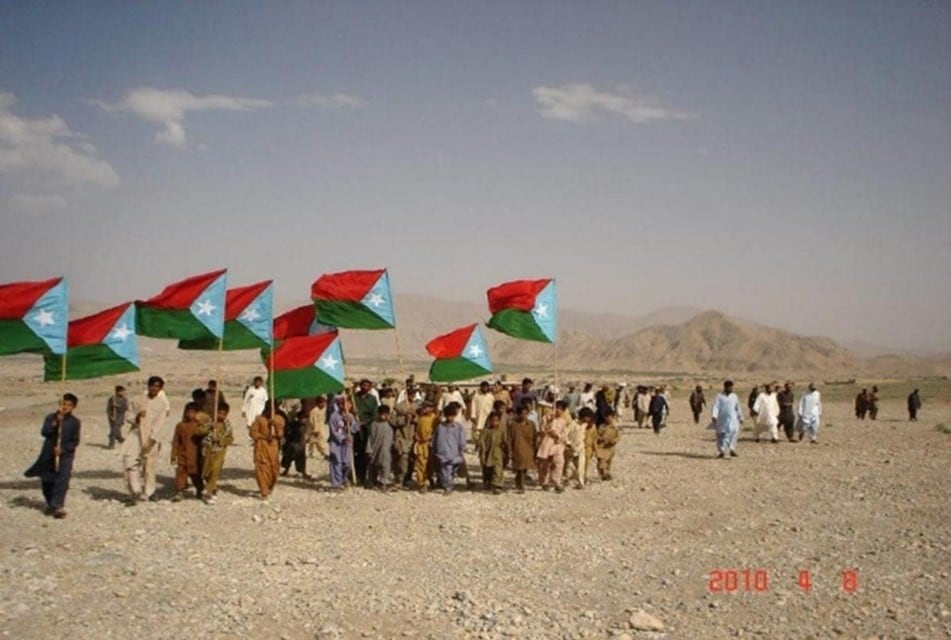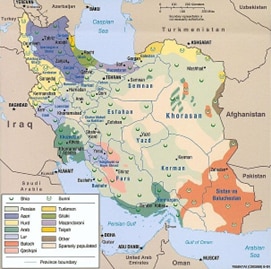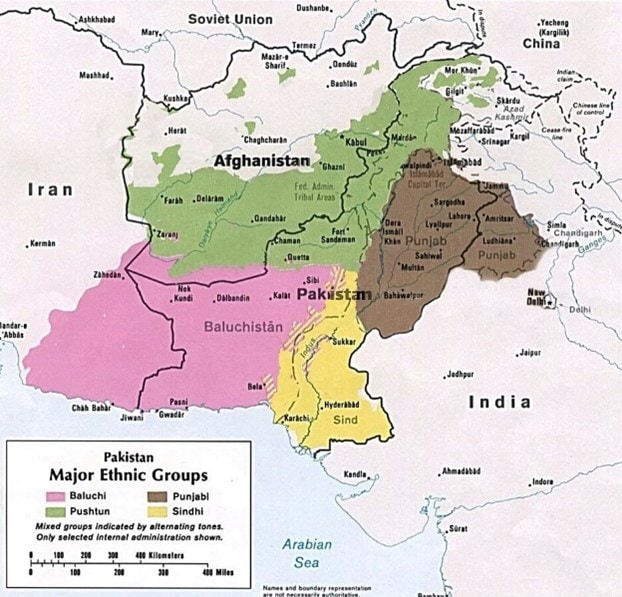Iran's regime can be toppled, but this can only be done with the help of ethnic groups. In order to stop the repression in the country and bring about stability in the region, the people of Balochistan are demanding not just regime change but independence. The solution to Balochistan's problems is to break the chains of slavery, a goal for which the Baloch people have made enormous sacrifices over the decades. This position is shared by the people of Kurdistan and Ahwaz as well. Therefore, it is the non-Persian ethnic groups in Iran that are most committed to an uprising against the Islamic Republic, as they have been suffering the harshest consequences of the regime's crackdowns.
It is worth remembering that, on September 30, 2022, the Iranian regime violently suppressed the demonstrations of Balochi protesters in front of a police station in Zahedan, leading to what would become known as the "Zahedan massacre" or "Bloody Friday," which left some 100 people dead. Suppression of the Baloch people is almost the norm, as the regime has been imprisoning and executing Balochs on false charges, with no evidence and without a fair trial.

Balochis flying the flag of Balochistan.
The Iran-Pakistan Nexus
Balochistan is divided among three countries: Iran, Afghanistan and Pakistan. Iran and Pakistan have been cooperating in the suppression of the Baloch people's struggle for self-determination since the time the Iranian Shah.
As the Pakistani English-language daily Dawn wrote, "The breakup of Pakistan[1] disappointed the Shah. The further dismemberment of Pakistan was a nightmare for him and he was concerned about the growing activities of the insurgents in Balochistan... Afghanistan was another area of common concern between the two countries, especially considering Afghan prime minister Muhammad Daud Khan's hard position against Pakistan after his coup in 1973... [Khan] also kept... insisting that Afghanistan could no longer turn a blind eye to the sufferings of the Baloch... The Shah conceived that the Soviets were pushing ahead through Kabul an agenda that was ultimately aimed at the creation of a Greater Balochistan and the inevitable dismemberment of both Iran and Pakistan. The Shah [therefore] pursued Pakistan to launch a military operation against the Baloch Liberation Front."[2]
In 1973 the Shah visited Pakistan at the invitation of President Zulfikar Ali Bhutto, whose main opposition was the Pakistani faction of the National Awami Party (NAP). Comprising Baloch and Pashtun leaders, NAP was led by veteran Baloch leader Nawab Khair Bakhsh Marri, a Baloch nationalist who believed in establishing a federal system. However, after Bhutto's violent crackdown on NAP and on the Baloch people, the Baloch Liberation Front launched an uprising against the central Pakistani government that lasted from 1973 to 1977 and was led by the Marri clan. Nawab Khair Bakhsh Marri was "the linchpin" of the 1973 Baloch insurgency.[3]
Fearing that the Baloch uprising would expand from Pakistan-Occupied Balochistan to Iran-Occupied Balochistan, Iran sponsored ground and air military operations against the Baloch people, with the Shah's army providing military hardware and financial support to the Pakistani armed forces. Further to a mutual agreement between the two countries, Pakistan received 30 Huey Cobra attack helicopters and millions of dollars in aid to conduct and sustain military operations against the Baloch people. The conflict took the lives of approximately 15,000 Balochs and 5,000 Pakistani soldiers. After General Zia-ul-Haq overthrew the Bhutto regime in Pakistan, he released the NAP leadership from jail. Nawab Khair Bakhsh Marri, along with thousands of Marri Baloch patriots, migrated to Afghanistan and from there continued their political struggle for independence from Iran and Pakistan.
The Shah's repressive policies against the non-Persian ethnic groups in Iran have been maintained by the Islamic Republic regime, and the Iran-Pakistan cooperation against the Baloch people continues to this day. For example, on November 26, 2022, Pakistan's air force deployed Iran-made suicide drones against a camp of the Baloch Liberation Army in Kahan, a village in Pakistan-controlled Balochistan.[4]

Source: CIA)

(Source: CIA)
Conclusion
The nexus between Pakistan's Inter-Services Intelligence (ISI) and Iran's Islamic Revolutionary Guards Corps (IRGC) is jeopardizing regional peace and hindering the global economy. The ISI and the IRGC are exchanging military hardware, sharing intelligence, and promoting and sponsoring proxy wars that threaten Western interests in the region. Furthermore, Tehran and Islamabad are assisting China and Turkey, respectively, in order to implement their expansionist agendas in the subcontinent.
Situated in a strategic geographical position, Balochistan is an important economic gateway, with trillions of dollars' worth of natural resources such as oil, gas, uranium, copper and coal, as well as the two deep sea ports of Gawadar and Chabahar. Balochistan is the perfect outpost to counter and curb Iran and its nuclear ambitions, as well as its dangerous relations with Pakistan, which may provide Tehran with tactical nukes.
Today, ethnic groups under the Iranian regime are realizing that they must remain united in order to bring an end to the Islamic Republic and obtain independence. The Kurds in particular are playing a pivotal role in reaching out to indigenous ethnic communities in order to cooperate in the uprising against the Iranian regime and redraw the borders in the region. The leader of the Free Balochistan Movement, Hyrbyair Marri (the son of Baloch leader Nawab Khair Bakhsh Marri) is also playing a key role in bringing the oppressed nations in Iran under a single umbrella. However, the West seems to be absent from this initiative. The Kurdish people were supported by the U.S. and some European countries to defeat ISIS, but unfortunately, they were then left alone to be butchered.
Hyrbyair Marri believes that Balochs, Kurds and Ahwazis have to fight for their own rights and freedom without waiting for assistance from the West. Nevertheless, the West must understand that it cannot afford to overlook the geostrategic importance of Balochistan, Kurdistan and Ahwaz. "Balochistan and Kurdistan have been made meat grinders... by their occupiers [i.e., the Iranian regime]. The International Community sees our plight but remains deaf and dumb. It is time for the oppressed people to unite," Marri stated.[5]
*Rudam Azad is a Baloch writer, Baloch representative, and Human Rights activist. He can be reached on Twitter, @RudamAzad and email rudambaloch@gmail.com.
[1] The reference is to an internal crisis in 1971 that resulted in a third war between India and Pakistan and the secession of East Pakistan, which created the independent state of Bangladesh.
[2] Dawn.com/news/1272879, November 24, 2016.
[3] Dawn.com/news/1111939, June 11, 2014.
[4] Twitter.com/RudamAzad/status/1597556870431940610/photo/4, November 29, 2022.
[5] Twitter.com/hyrbyair_marri/status/1595512542352314382, November 23, 2022.





